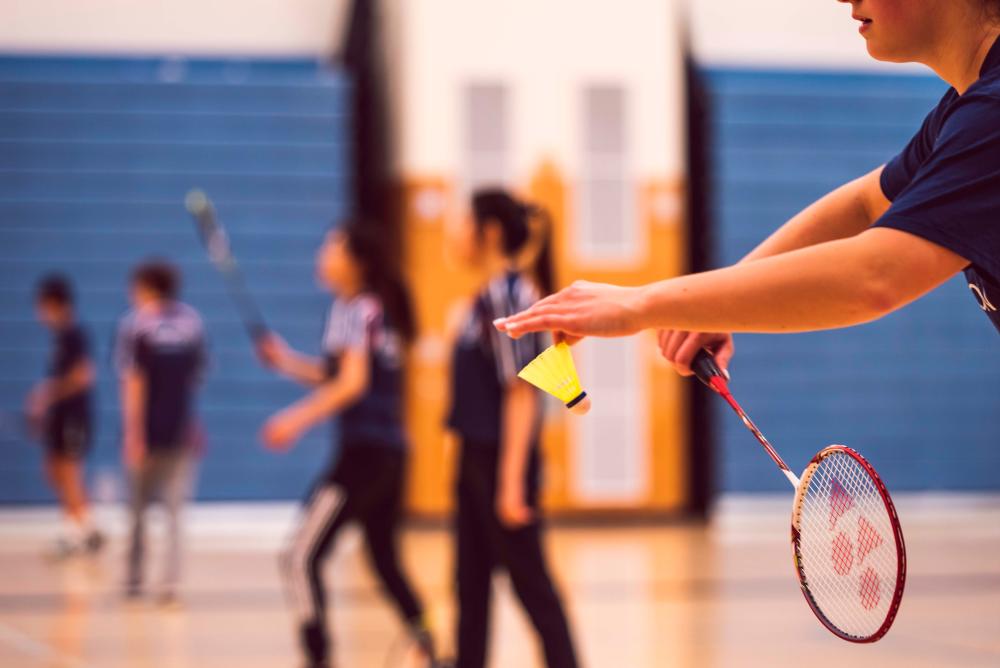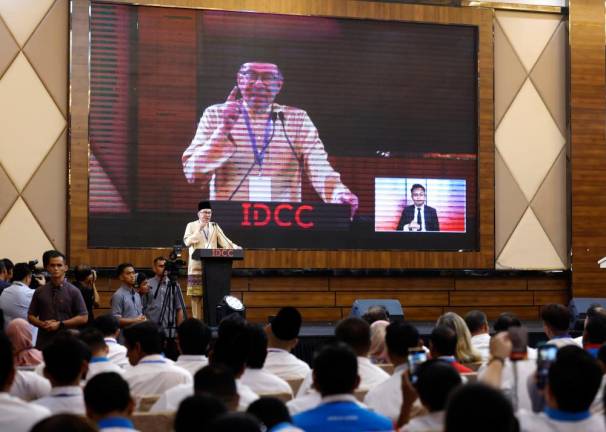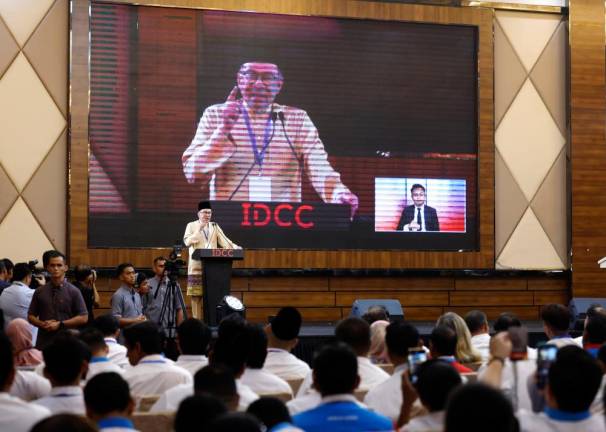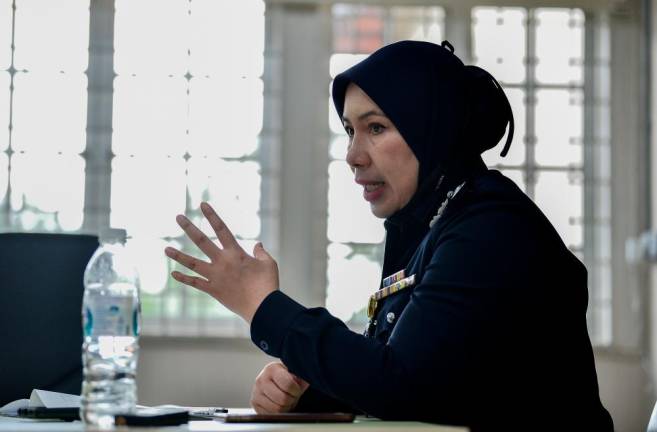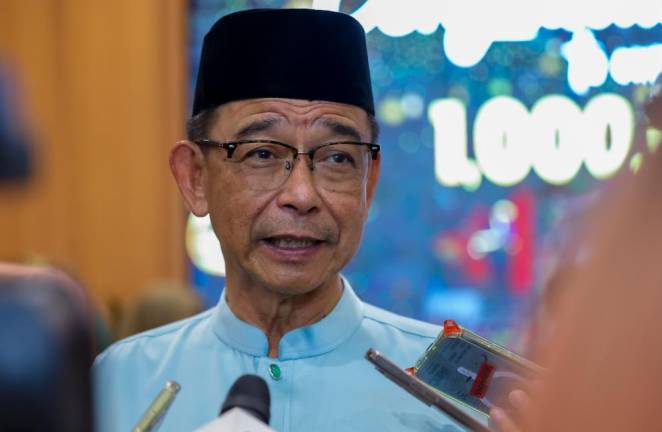NATIONAL badminton federations and professional set-ups can complement one another for the greater good of the sport.
The Badminton World Federation (BWF) needs to look at the Lee Zii Jia-Goh Jin Wei episode in a positive manner to herald the long-suppressed changes that are needed to take badminton to greater heights.
It has to change the status quo that has been stifling the growth of this beautiful racquet game worldwide.
As has been said there is no stopping an idea whose time has come.
Both the national badminton associations or federations and the professional set-ups can complement each other in their quest to improve the sport.
One should look at the phenomenal growth of tennis since the ATP came into being. There are literally hundreds of quality new players added every year, which has made tennis extremely popular and lucrative.
The same can be expected of badminton whose growth since the Thomas Cup was introduced in 1949 has been very slow and the domination of the sport had been confined to a few nations such as Malaysia, Indonesia, China and Denmark.
The BWF has initiated a lot of changes in the last two decades that have enabled more countries to have a winning chance in tournaments as can been seen in the Thomas Cup triumphs of Japan and Denmark in recent years.
The soon-to-be-introduced artificial shuttlecock will take the sport further as the price of the goose-feathered shuttles was a dampener for the popularity of the game in some countries such as India.
The BWF needs to use the present dilemma facing the two Malaysian players to serve it as a catalyst to improve the popularity of the sport in line with the needs currently.
The stranglehold of national associations needs to be ended for the next stage of growth and popularity of badminton.
In Malaysia the Badminton Association Malaysia (BAM) has not been able to make this sport truly multi-racial and therefore capable young badminton players, notwithstanding racial considerations, should be allowed into the professional set-ups to make their mark in representing the country.
This will open up prospects for players who want to excel in the game.
Currently, many players who could improve over time are culled off early by BAM and lose heart in wanting to continue.
Providing an equal chance for both the players nurtured by the national association or professional set-ups is one way for Malaysia to attain success.
One needs to recall that Malaysia’s last Thomas Cup victory was 30 years ago in 1992, despite BAM spending hundreds of millions of ringgit in the intervening years.
Malaysia needs to increase its reservoir of players and the only way is to recognise the professional set-ups in helping the country win back the Cup.
A good example is Denmark where the club system had nurtured the sport despite all the agonising defeats in the Thomas Cup tournaments since 1949.
Any other country would have given up the sport for good since winning the Cup had become impossible, but not for the Danes.
Even their dream team of 1964 could not lift the Thomas Cup. However, their club system, a professional set-up, continued to nurture the sport, when badminton almost disappeared from Europe.
Despite not winning the Thomas or Uber Cups, the Danes continued to dazzle in the All England and World championships.
The club system was the buttress of Danish badminton during the tough times.
Now badminton in Denmark and many other major countries has become lucrative and prospects are good and stable for the future.
Prize money and the number of tournaments have increased and many train hard as they feel that it is rewarding to be top-notch players.
The rise of Carolina Marin, who has won the All England, Olympic title and World Championships speaks volumes of the professional set-ups helping her to excel in the sport.
Spain was better known for football, tennis and bull fighting, not badminton.
Professional set-ups will increase the popularity of the sport worldwide. Currently, the game is confined to Malaysia, Indonesia, China, South Korea, Japan, Taiwan, Thailand, Singapore, India, Denmark and England.
Surely the net has to be cast wider to enable more countries to take up this mesmerising racquet sport.
This is also what the International Olympic Committee wants as it has warned that badminton will cease to be an Olympic sport if there is no greater increase in the number of nations involved in the sport.
As such, recognising and supporting professional badminton set-ups will be one sure way of expanding the popularity of badminton worldwide.
More live telecasts of badminton tournaments need to be aired live for free on YouTube channels since the tournaments are already sponsored.
This will increase viewership and popularise badminton further.
Nowadays, there are a lot of corporate sponsors for badminton unlike before and now is the time to initiate whatever changes are needed and sponsors will be delighted to know that badminton has a wide reach and they will cash in.
The BWF under Paul-Erik Hoyer Larsen has been proactive and if not for the pandemic of the last two years, he would have ushered in more changes.
There has been no information about the artificial shuttlecock which will be a game changer for millions of players who are concerned about the high price of quality shuttlecocks.
The BWF also needs to initiate an International Badminton Academy, replete with capable coaches who can train a large number of badminton enthusiasts. Worldwide Carolina Marins and Loh Kean Yews are waiting to be discovered.
The professional set-ups can ensure a large numbers of players will train up with the academy.
Trainees will have to bear the costs on their own or be sponsored by national associations.
An International Badminton Academy will do much for the sport in not only training players, but also coaches, managers and other staff essential for a badminton set-up.
It is hoped that the BWF will have a meeting urgently to discuss the issues of the two Malaysian players. The views of the BWF will be crucial in resolving this dilemma.
It is not known whether monetary considerations were the prime movers for the duo leaving BAM and facing the ban.
Whatever they are, it is timely and opportunistic for the BWF to look at the need of the hour and bring about urgent transformation and changes.
The Danish president hails from a country that has both the national association and professional club system complementing, not competing against each other and becoming successful.
He has first-hand experience and expertise to convince national badminton associations that they have to change with the times, for the well-being of the sport.
Comments: letters@thesundaily.com



